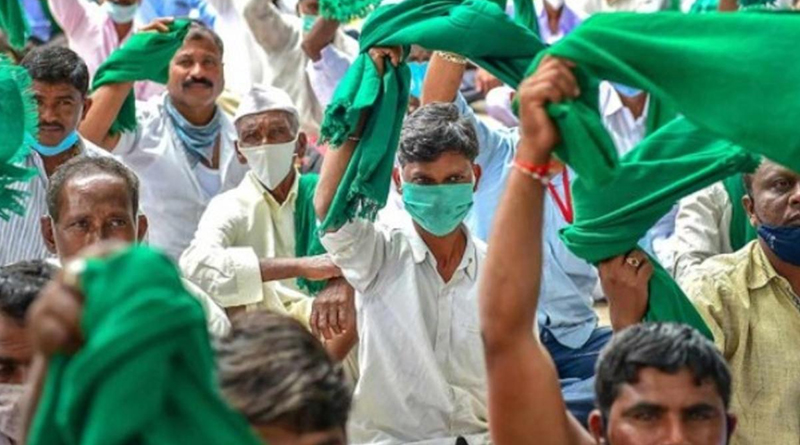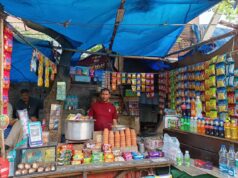Opposition parties and some farmers’ organisations have protested against three new agricultural reform laws. These provide much-needed reforms that will help farmers get a better price by cutting out middlemen and improving marketing efficiencies. The protests arise from false accusations that the new laws mean abolition of minimum support prices (MSP) and procurement by central and state governments.
The new laws give farmers freedom to sell their produce anywhere in India. Readers, ask yourselves, would you rather be free to earn a salary or sell goods or services anywhere in India, or only in places designated by state governments, only after paying middlemen a commission, and only after paying a tax to state governments (akin to the mandi tax paid by farmers)? That would be condemned as an outrage. Farmers must be as free as non-farmers to buy and sell anywhere in India.
Farming is not an attractive occupation. Surveys show 42% of farmers want to move out of it. Between 1970-71 and 2015-16, the number of farms more than doubled from 71 million to 145 million while the average farm size more than halved from 2.28 hectares to 1.08. Nobody can earn a decent income from such tiny farms. The main solution lies in moving people out of agriculture into manufacturing and services. Other measures are only palliatives.
Opposition parties claim freedom to sell will mean the end of government procurement at MSPs. That is a plain falsehood. The government will continue procuring some (though not all) produce at MSPs. How else will the government get the grain for ration shops? Alas, we live in an era of fake news. Since one hectare of cereals will not yield a decent income, small farmers are shifting to animal husbandry, vegetables, and fruit. These yield more income from less land. But vegetables and fruit are perishable and cannot be procured and distributed by slow-moving government agencies. The best way forward is for groups of farmers to strike contracts with agro-processors. Contract farming will create scale economies for farmers and ensure a minimum price.
Leftists say farmers will lose and only corporations will gain. How so? Any farmer can opt into or out of contract farming. Over two decades, ITC has set up echoupals, procurement centres with electronic information enabling farmers to track prices at mandis and foreign markets, satisfying themselves they are getting a fair price. E-choupals help up to four million farmers growing soyabean, coffee, wheat, rice, pulses, and shrimp in 35,000 villages across 10 states. This obviously helps farmers who participate voluntarily. Yet ITC’s profits are so modest that rivals have not rushed to copy it. The same will be true of contract farming.
Besides, contract farming will encourage group farming by small farmers to reap scale economies. The buying corporations will have a high incentive to provide farmers with the best new technologies and farm practices, something government extension services have failed miserably to do.
The Essential Commodities Act was enacted decades ago to stop hoarding. States could decree stock limits for traders and prevent them from moving goods across states. In practice, it hit farmers too. They were not protected if the prices of potatoes or onions fell but were prevented from reaping high profits when prices rose. It also meant little investment in agri-warehouses that are essential for farming in other countries. Which trader will invest in large warehouses if the government suddenly imposes stock limits that make him a criminal? The amendment of this Act will help farmers benefit when prices rise.
Some politicians think government procurement of all farm produce at a high price is the solution. However, global experience shows that if the governmentguaranteed price is above international levels, this will induce a glut for which there is neither domestic nor foreign demand. The European Union used to have high farm support prices that created mountains of unsold meat and butter and lakes of milk, which were ultimately sold at a huge loss to the Soviet Union. Now the EU has shifted mainly to direct income support for farmers.
India is shifting in a similar direction with Telangana’s Rythu Bandhu scheme (Rs 10,000/acre) and Modi’s PMKisan scheme (Rs 6,000 per acre). Best is Odisha’s KALIYA, providing cash transfers (Rs 10,000/acre) not just to landowners but also tenants and sharecroppers; Rs 12,500 to landless households to start poultry, goat-rearing and fisheries; Rs 25,000 over five years for small and marginal farmers to buy inputs; and insurance benefits.
In sum, farmers need the freedom to sell, move out of agriculture, and cash support rather than high prices in the interim. That’s the way to go.
All views are personal. This article was originally published in the Times of India on September 27, 2020.
Read our explainer on the 3 farm bills: Do the farm bills benefit the farmers?
Post Disclaimer
The opinions expressed in this essay are those of the authors. They do not purport to reflect the opinions or views of CCS.






